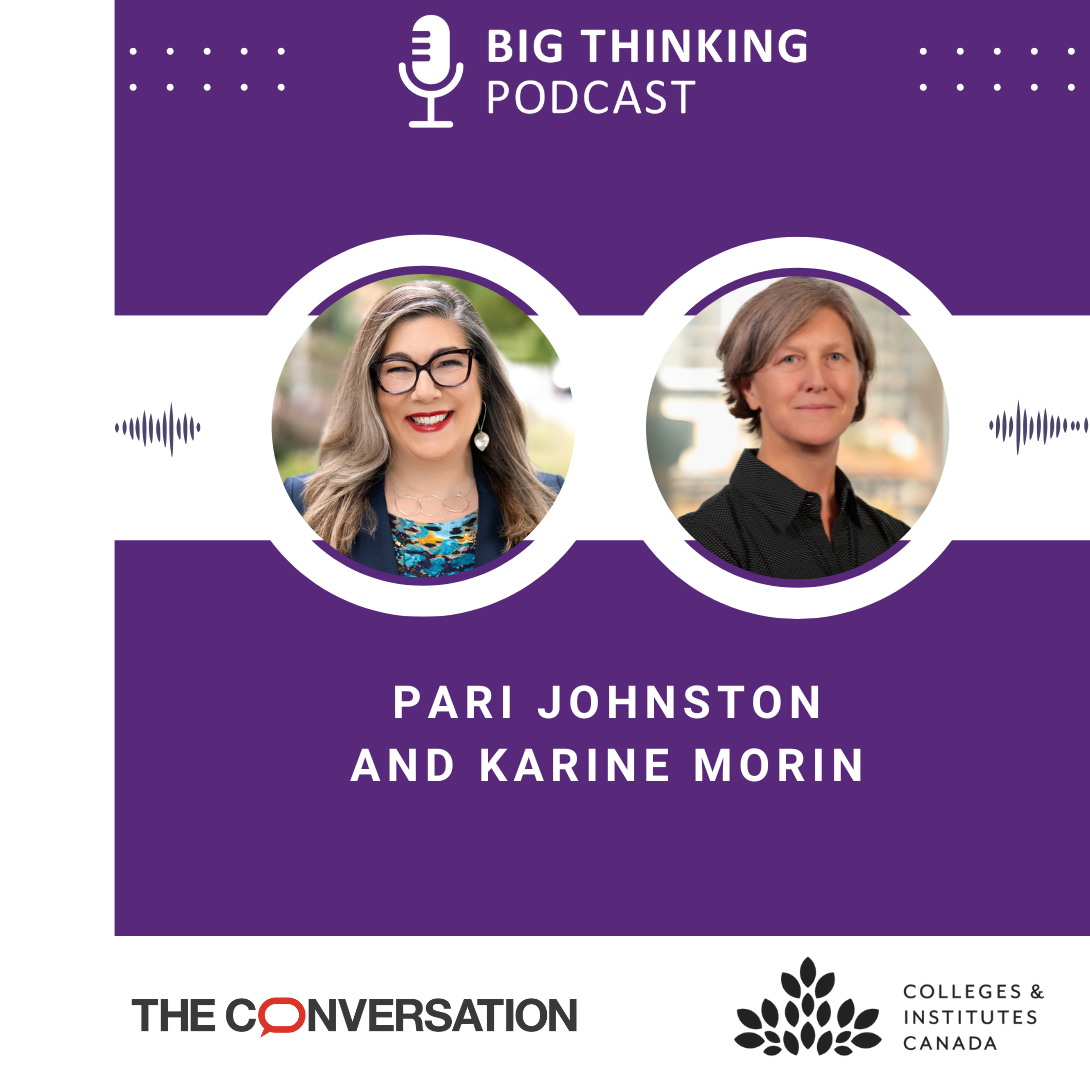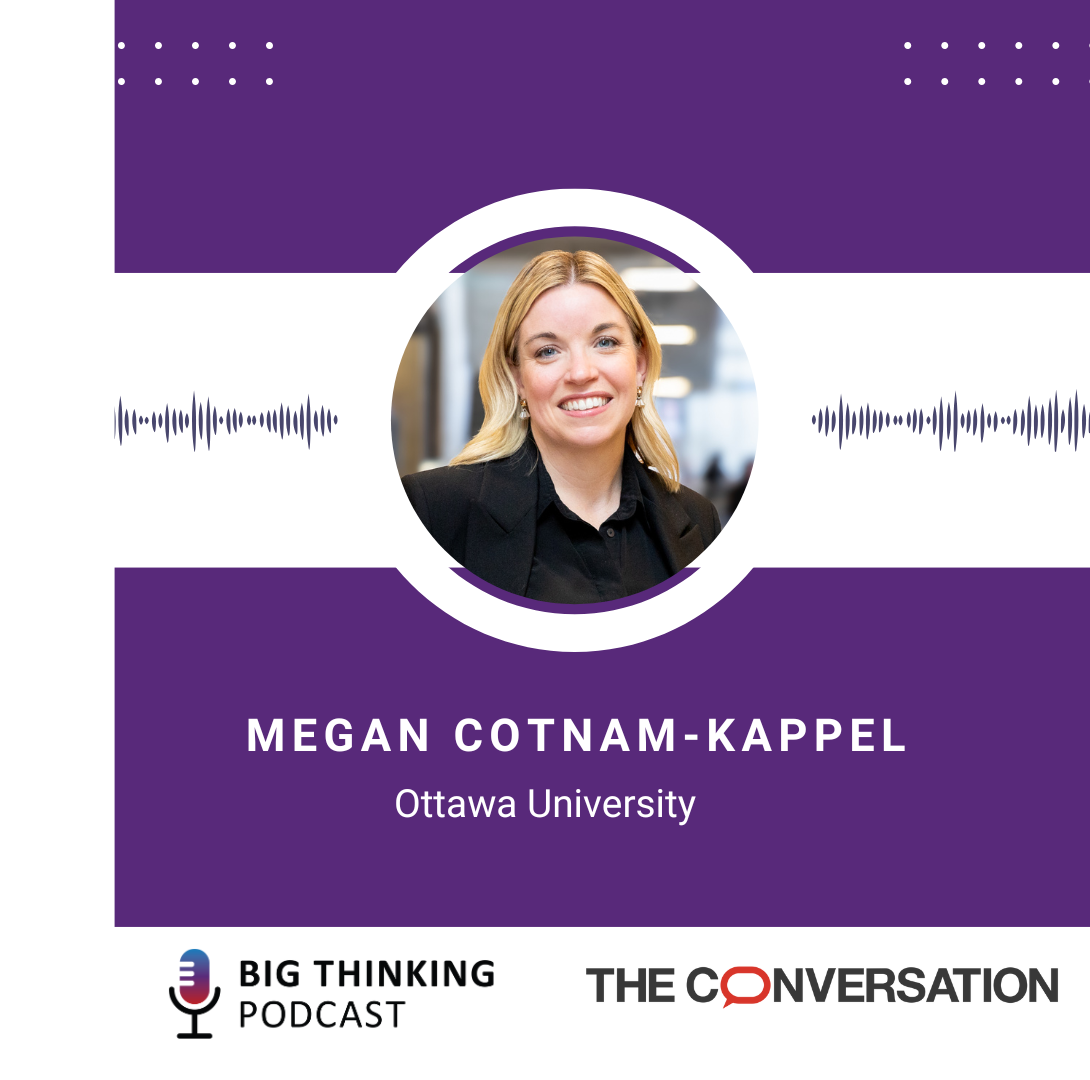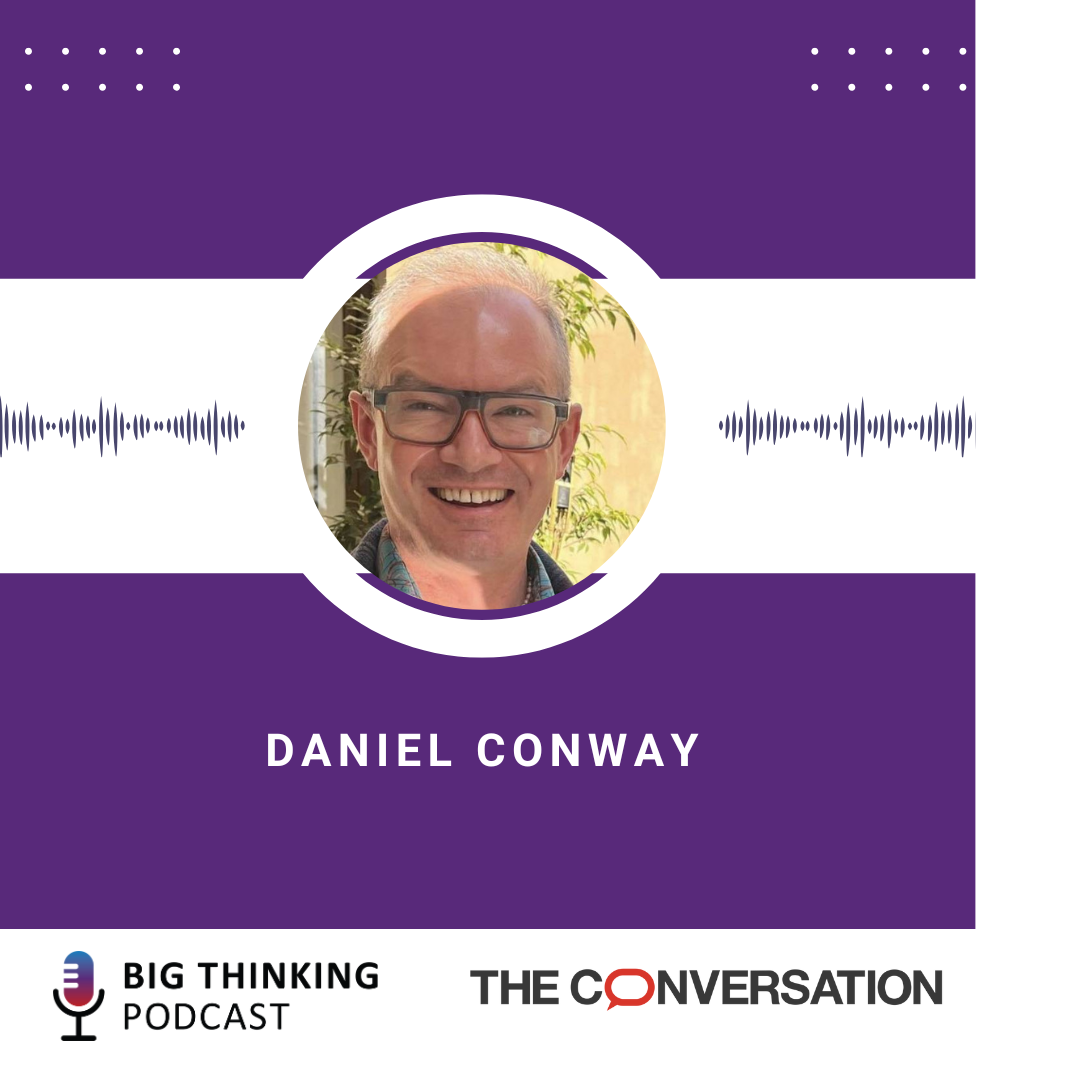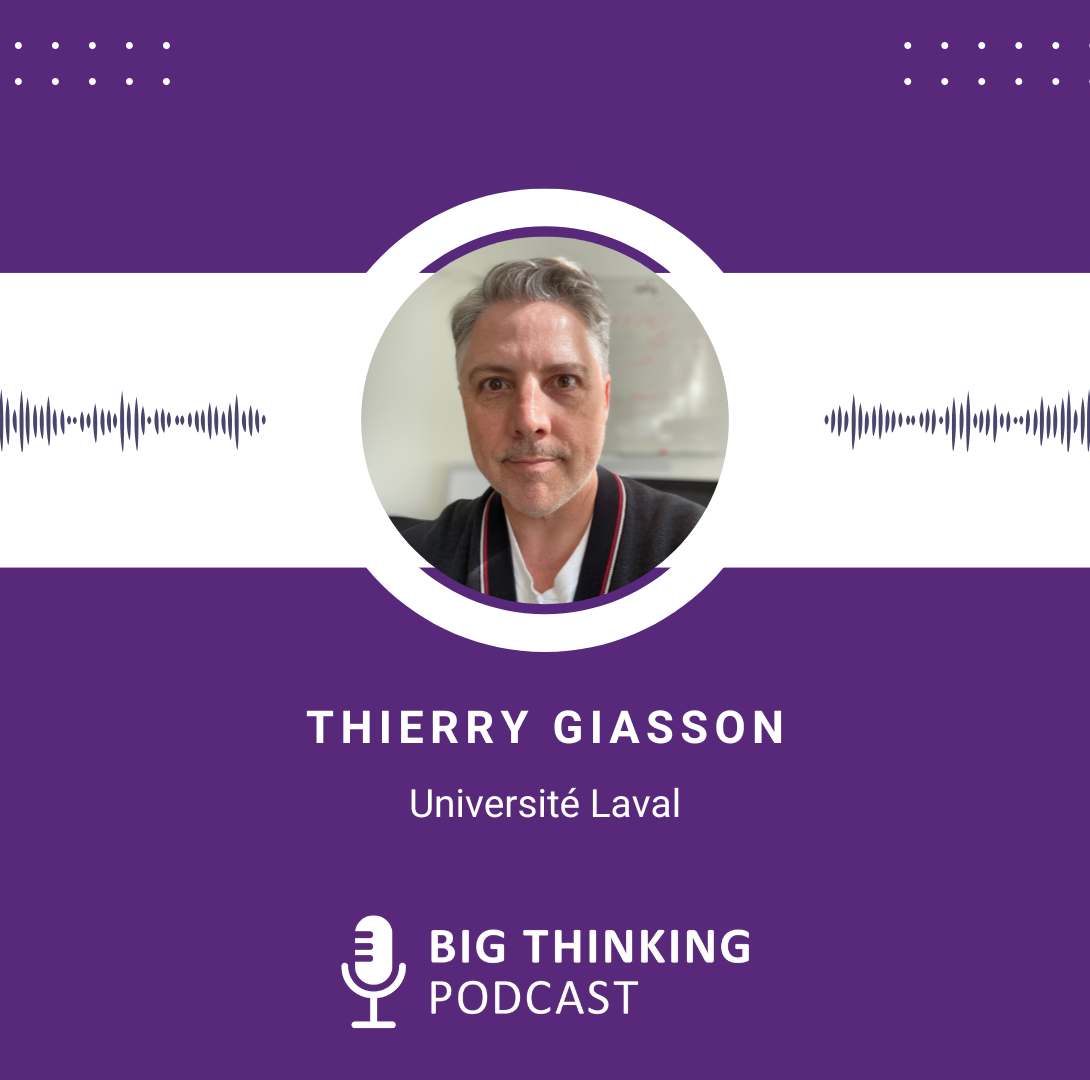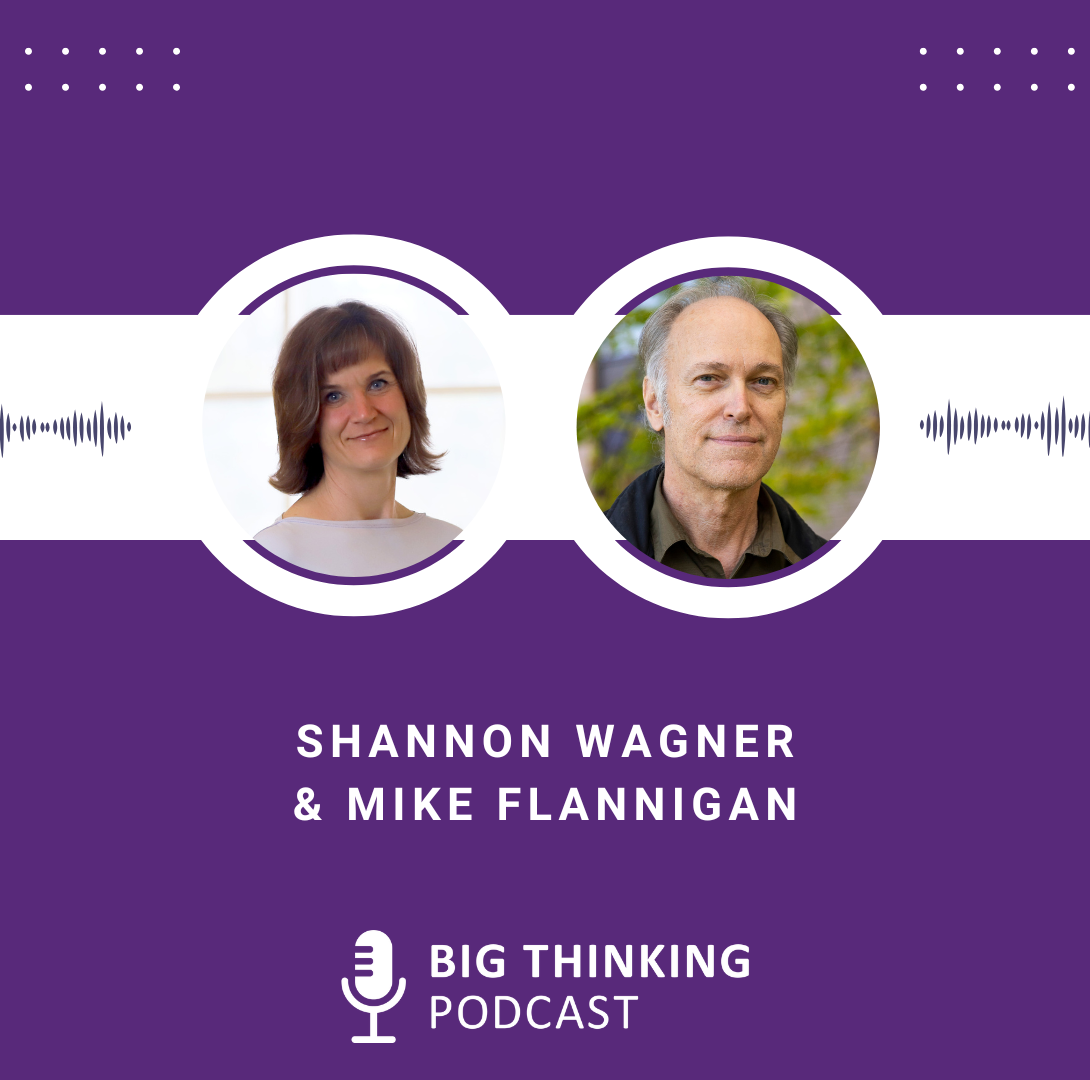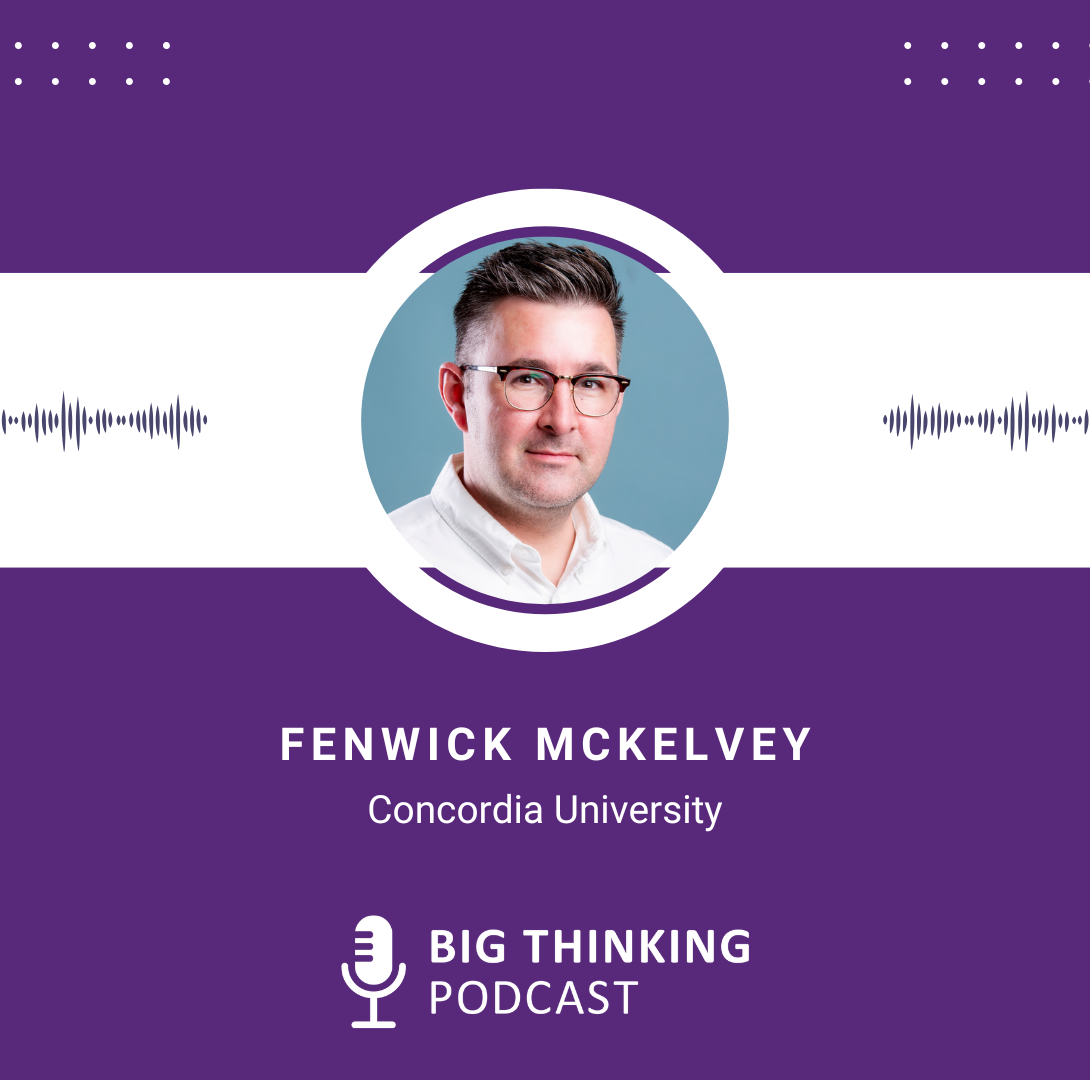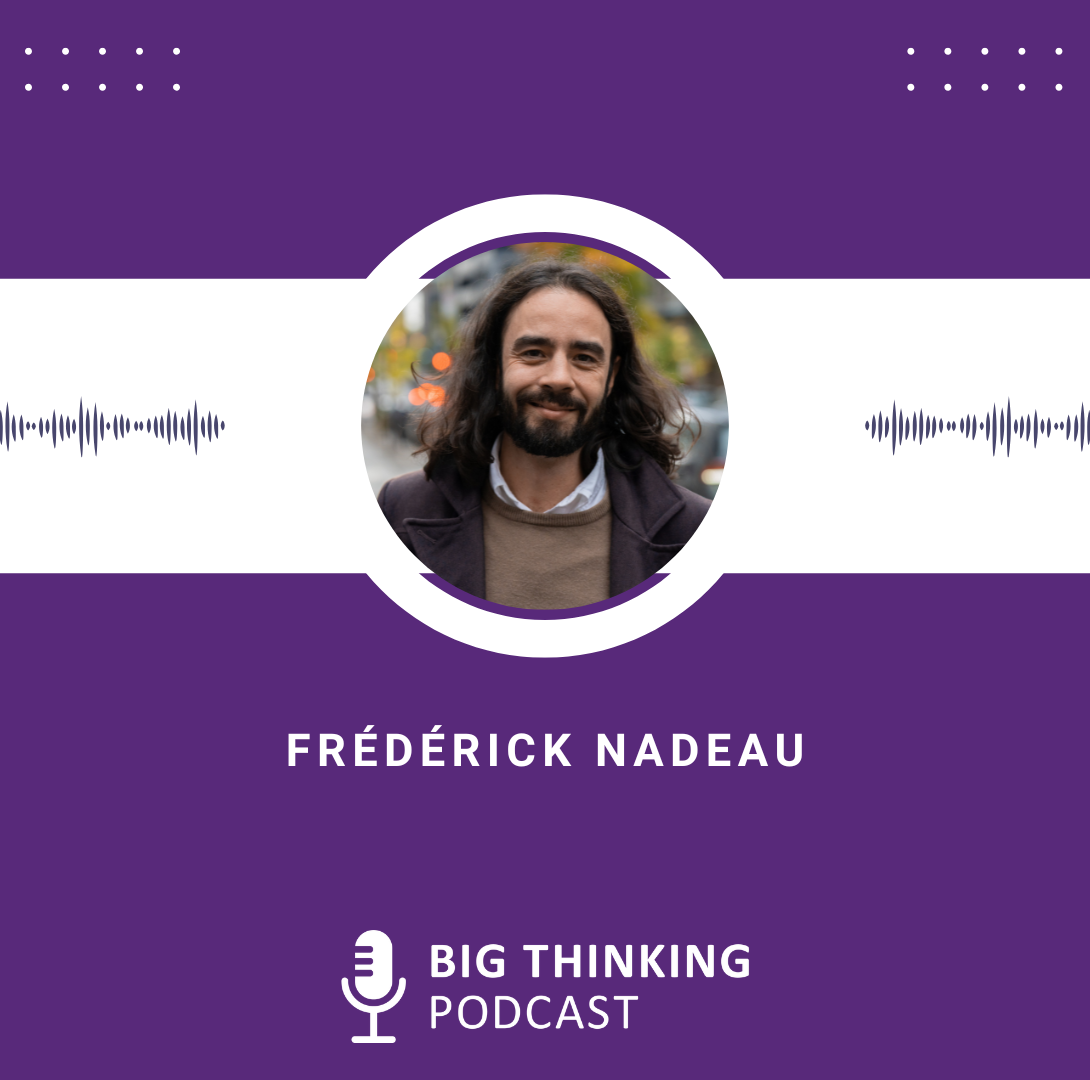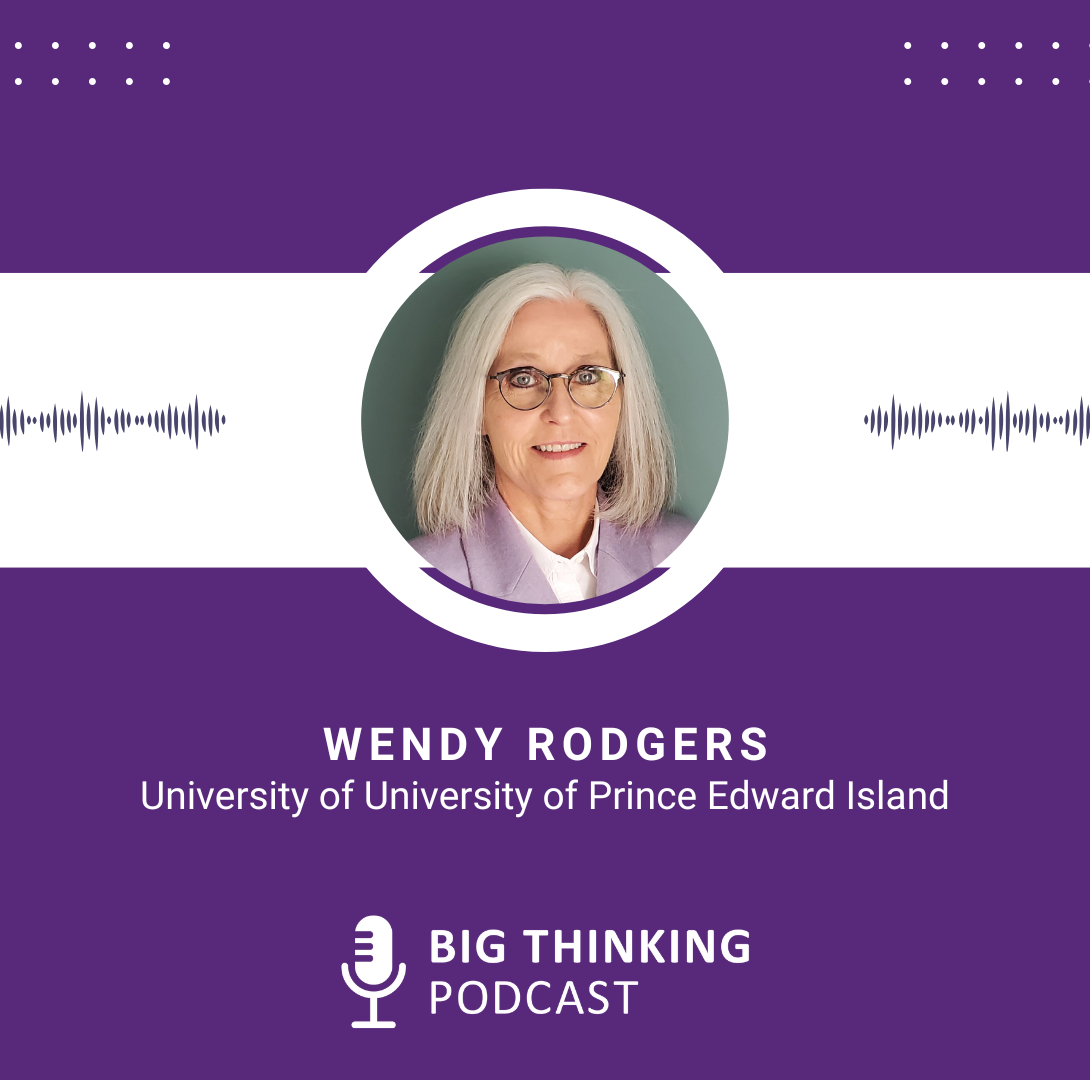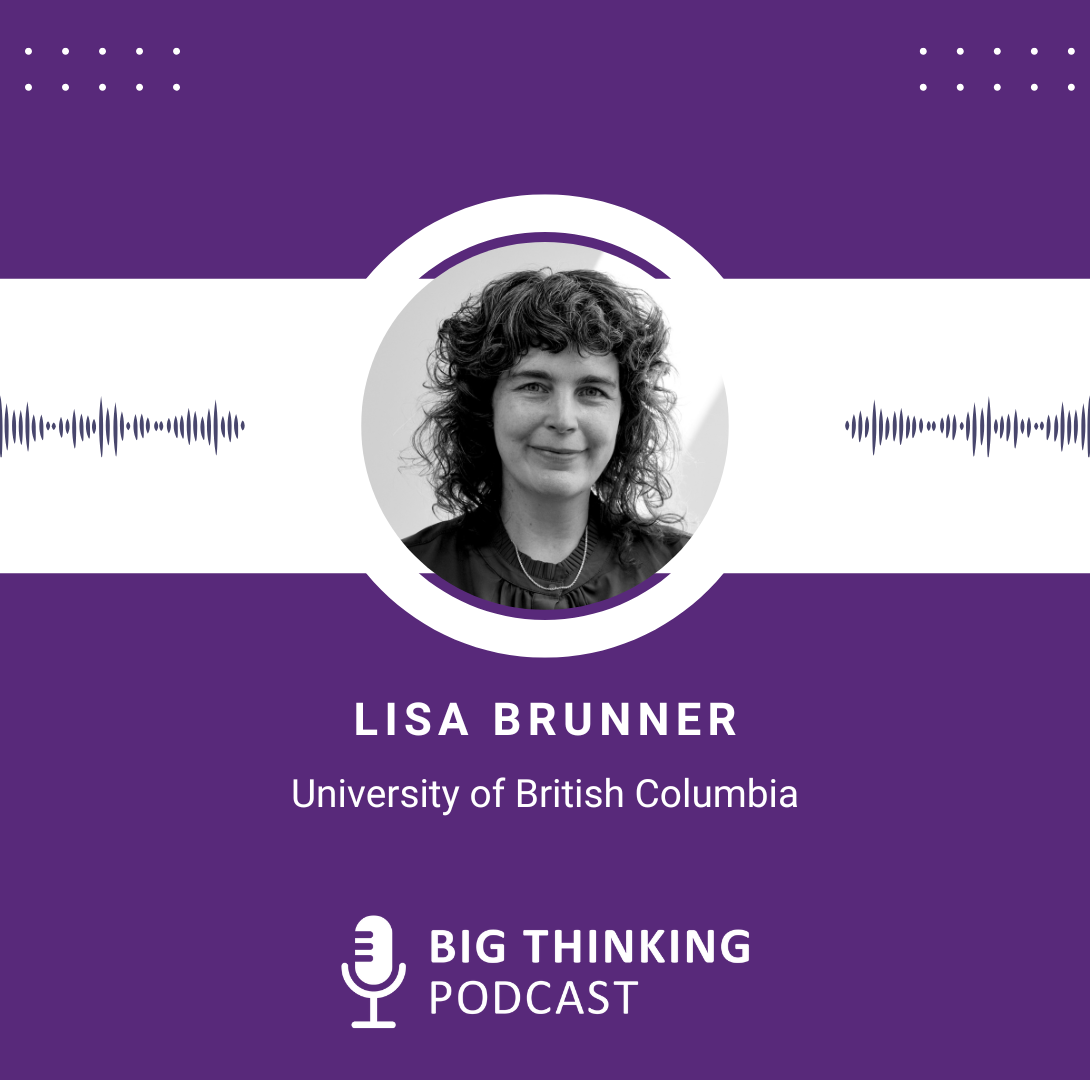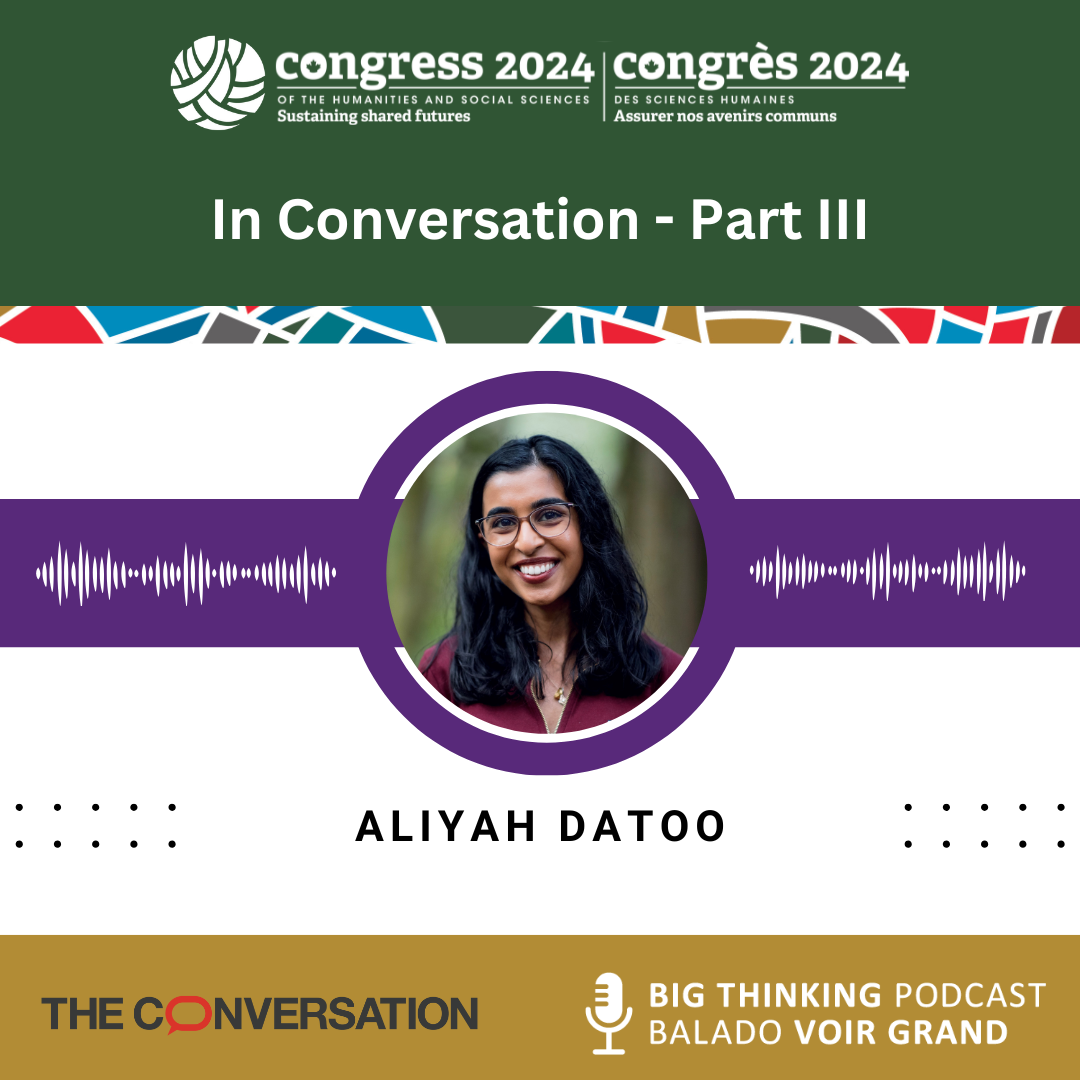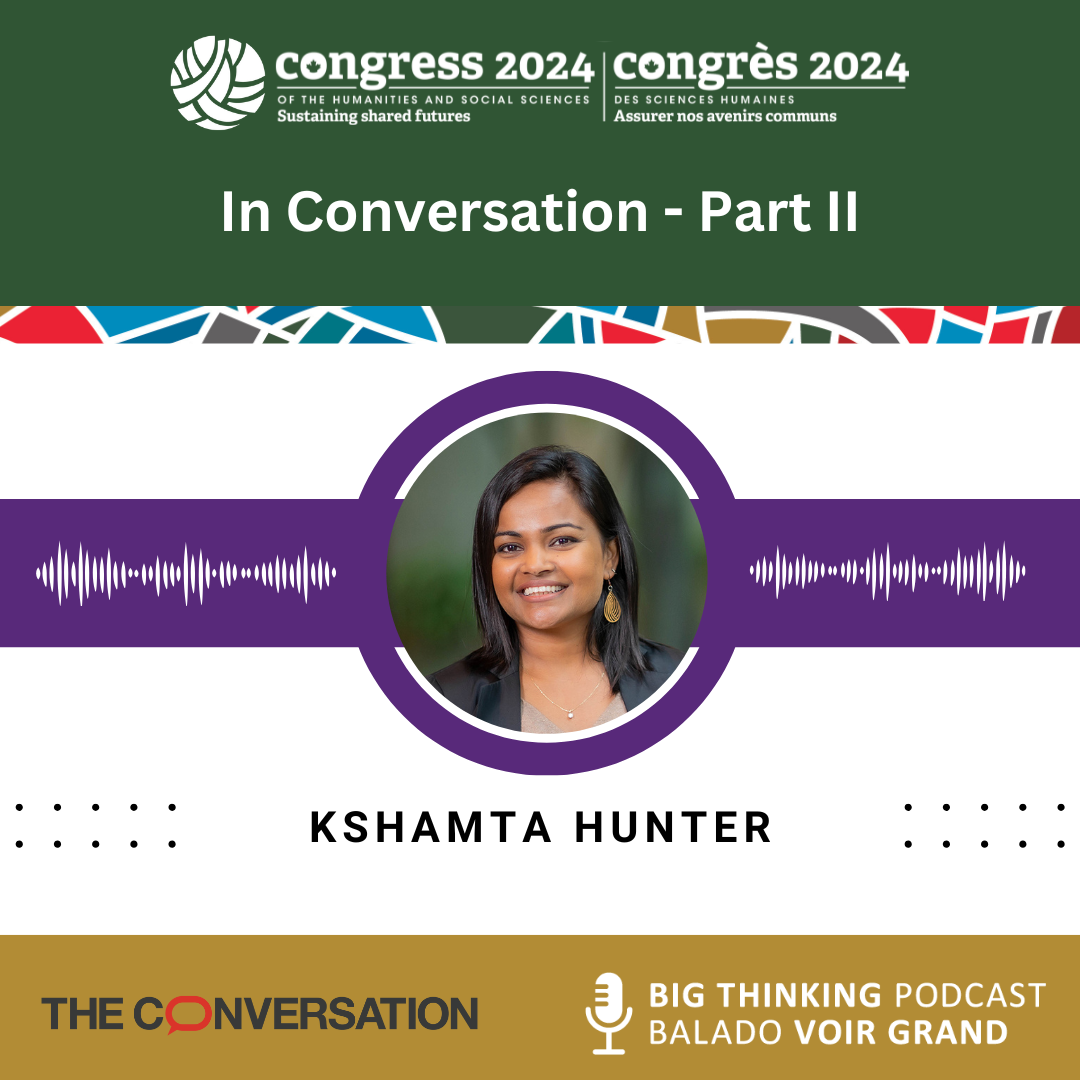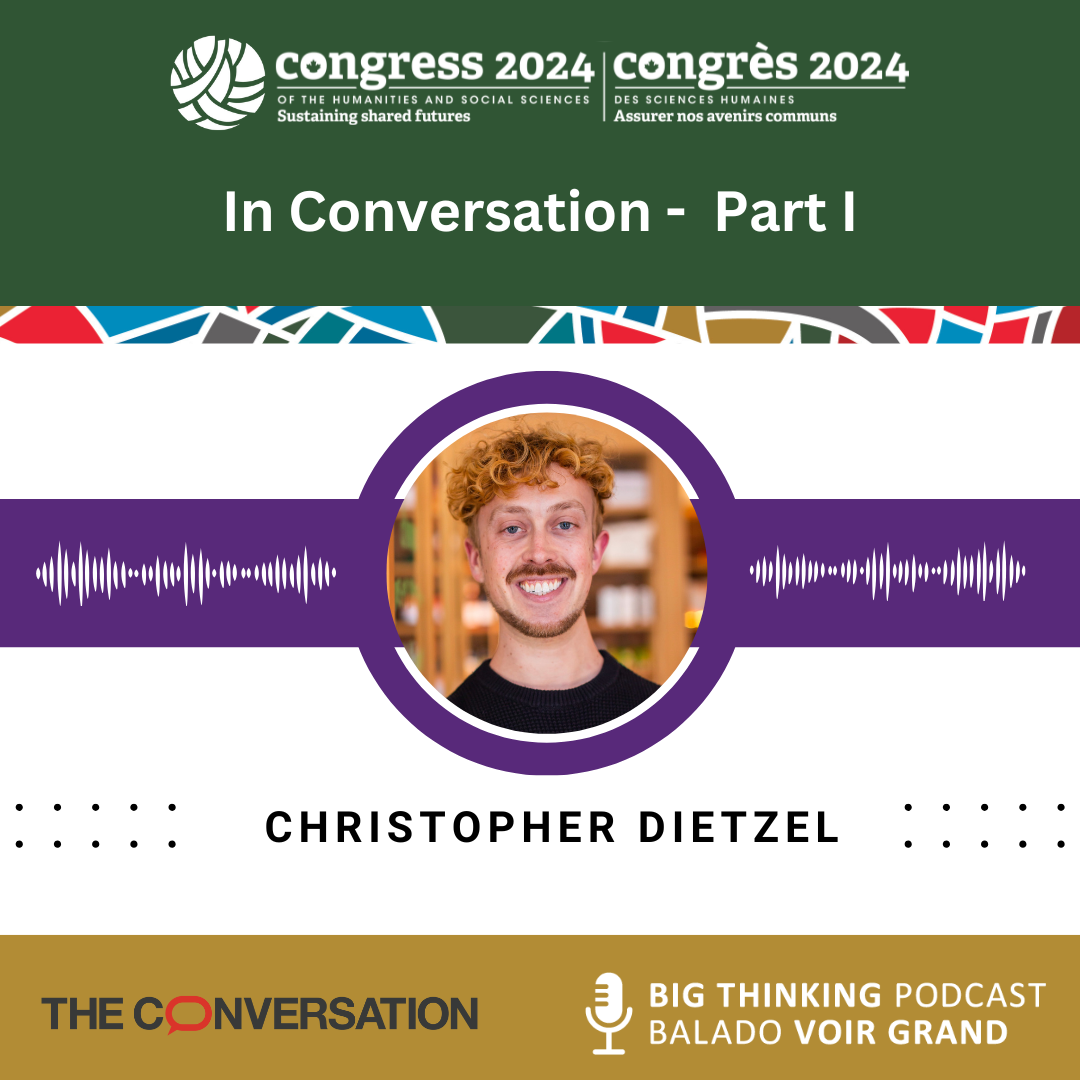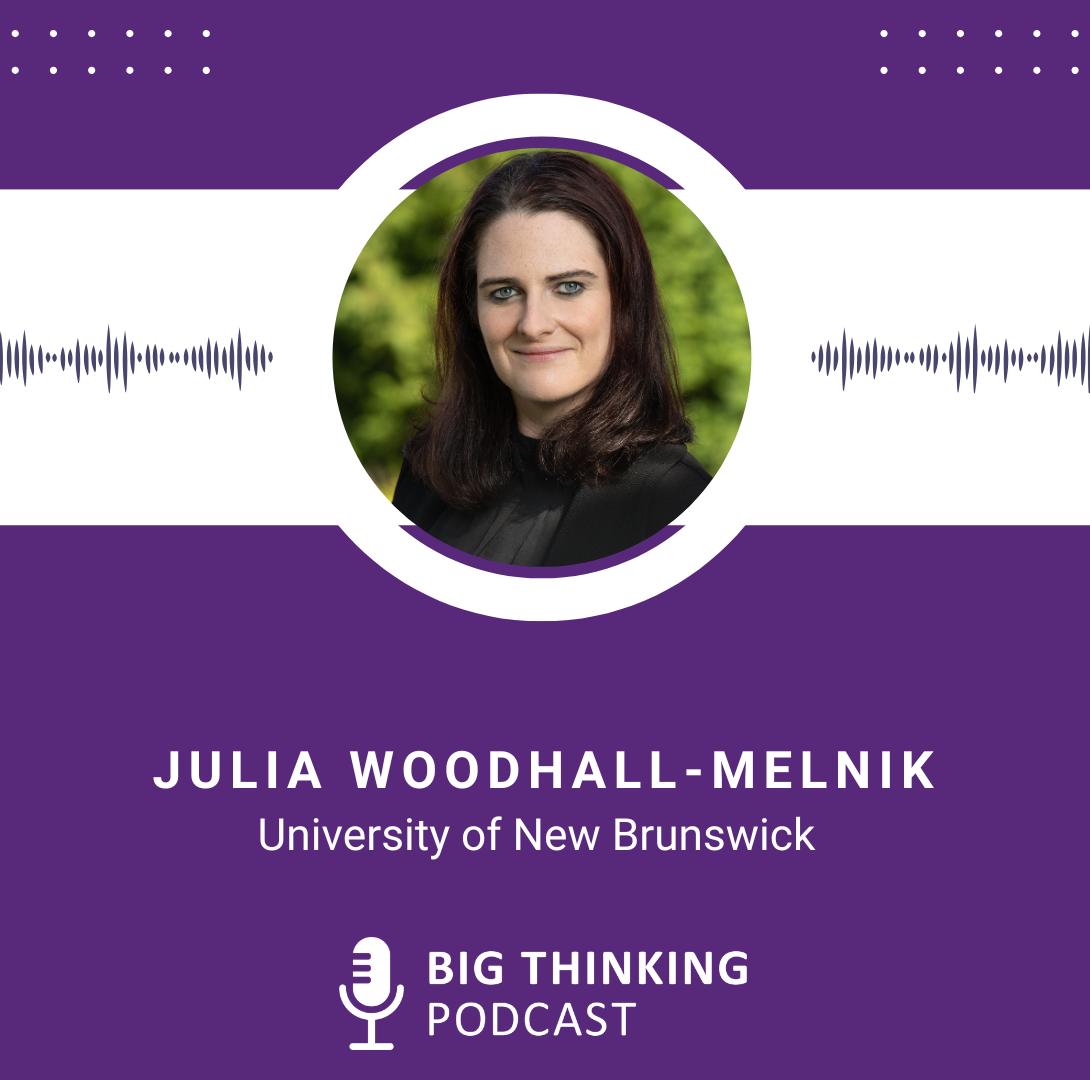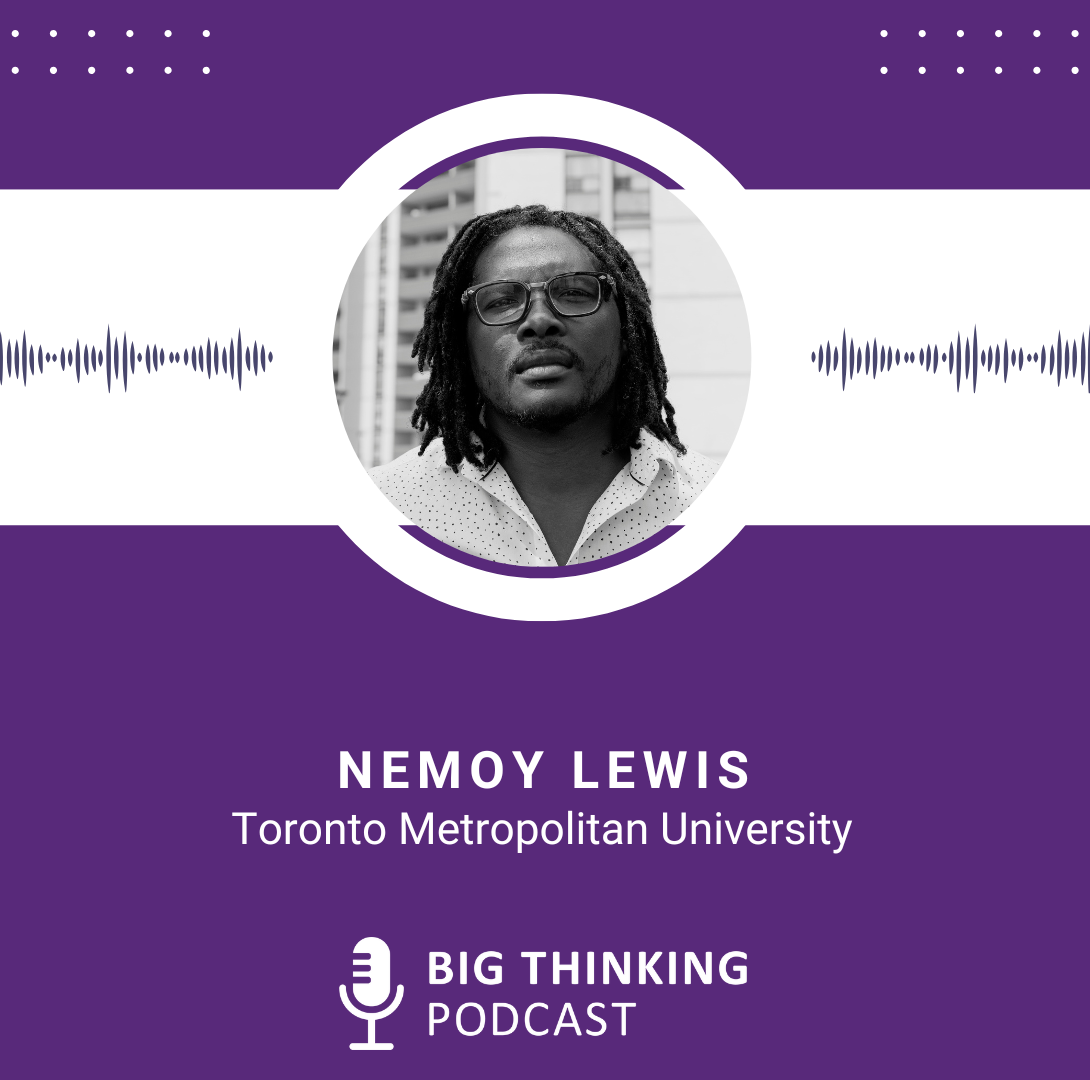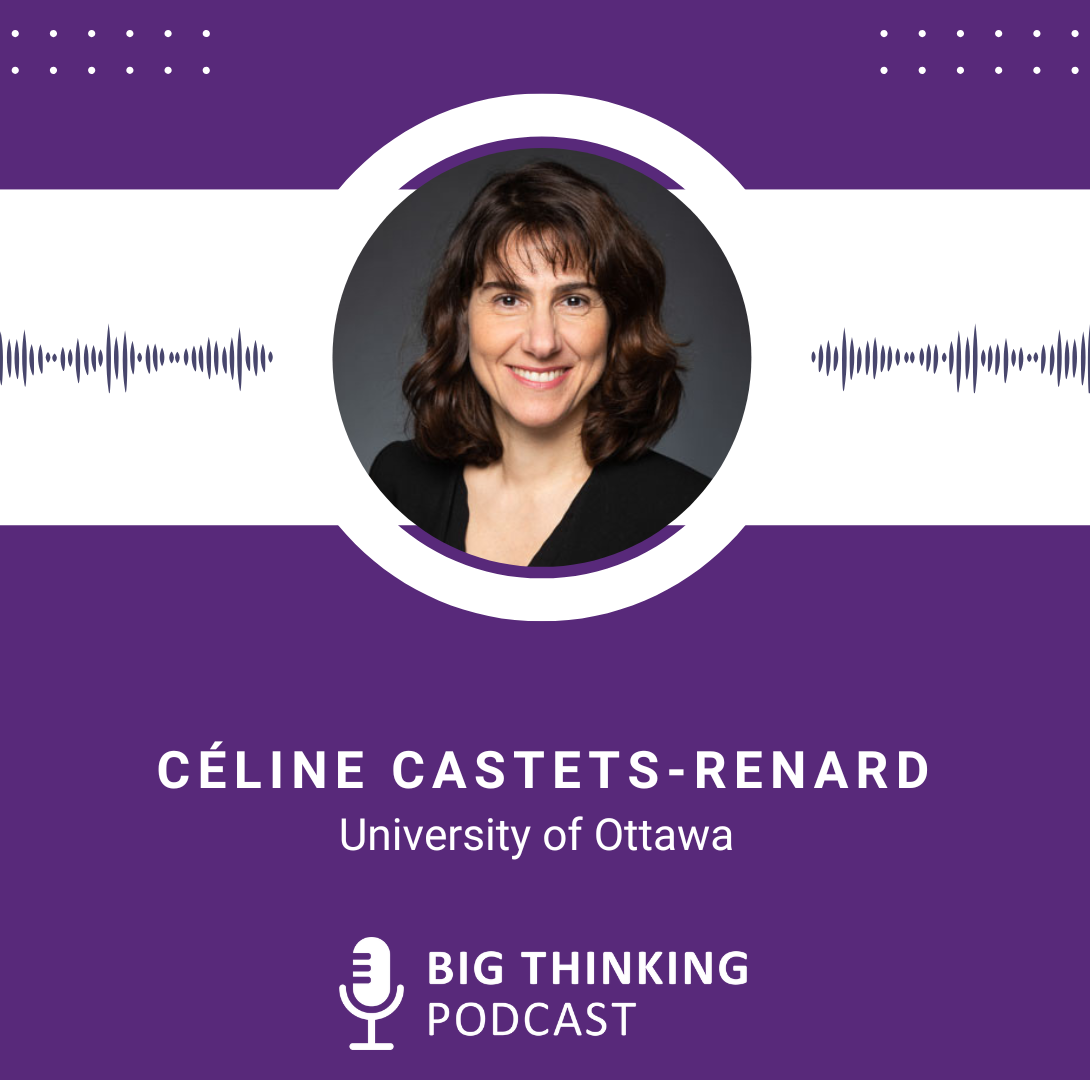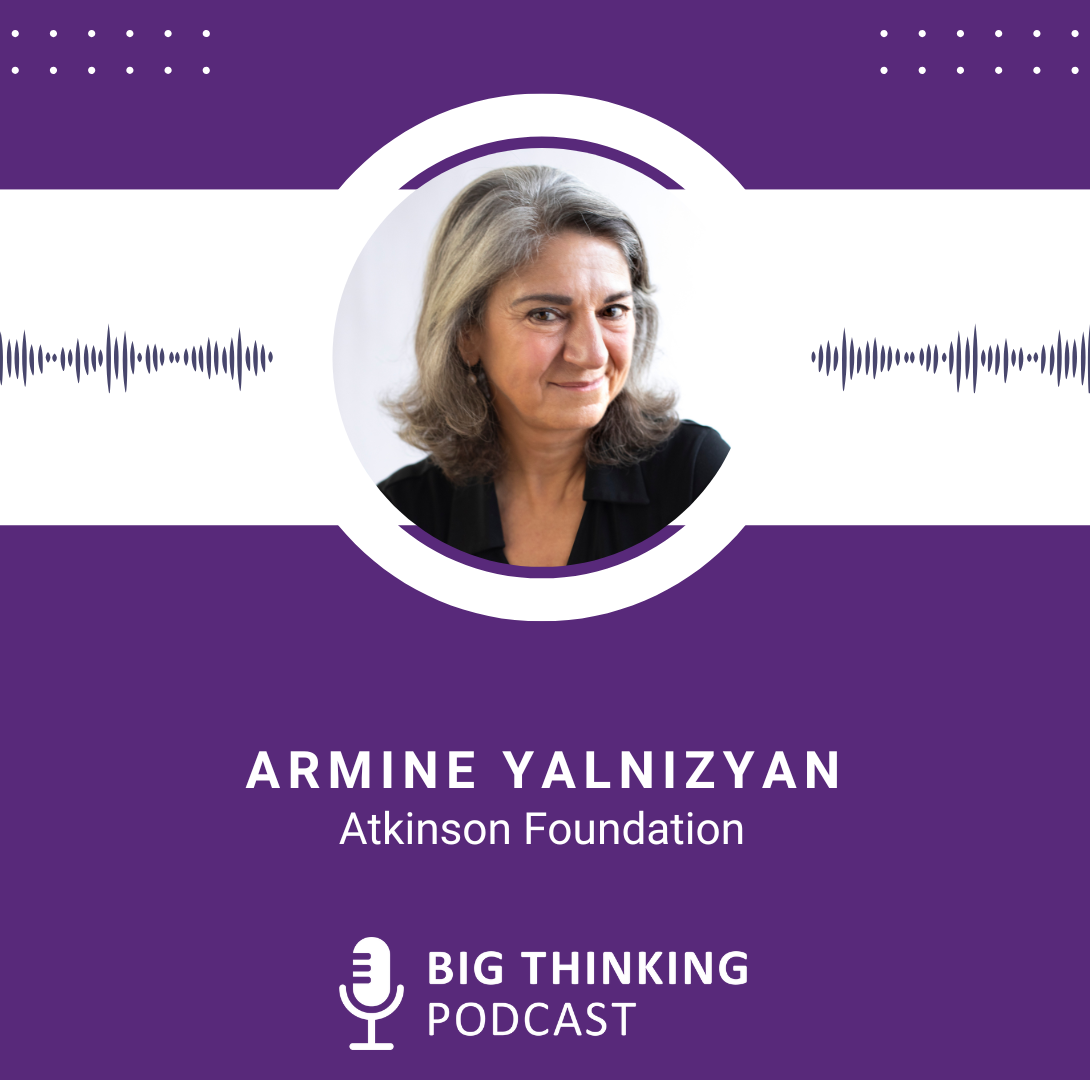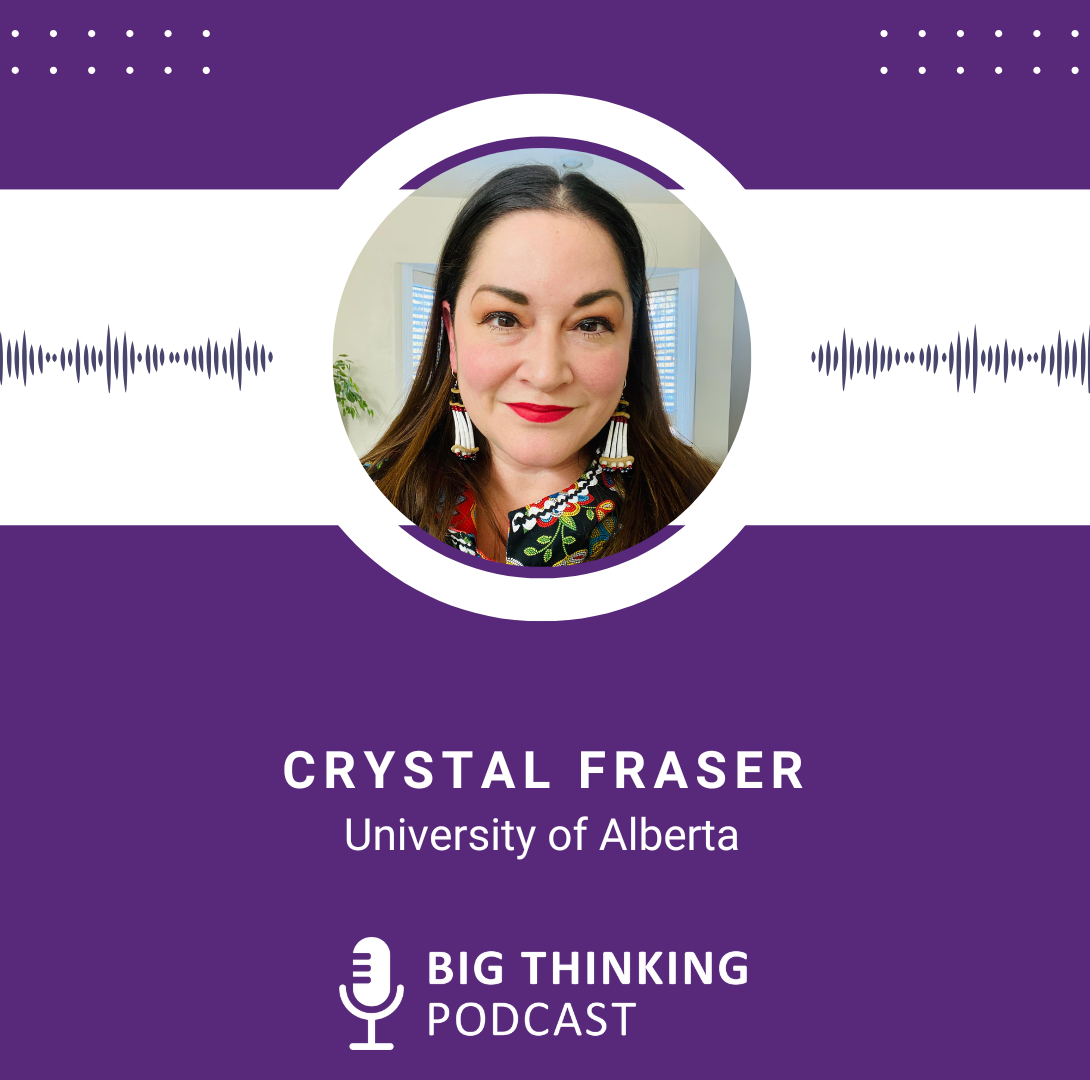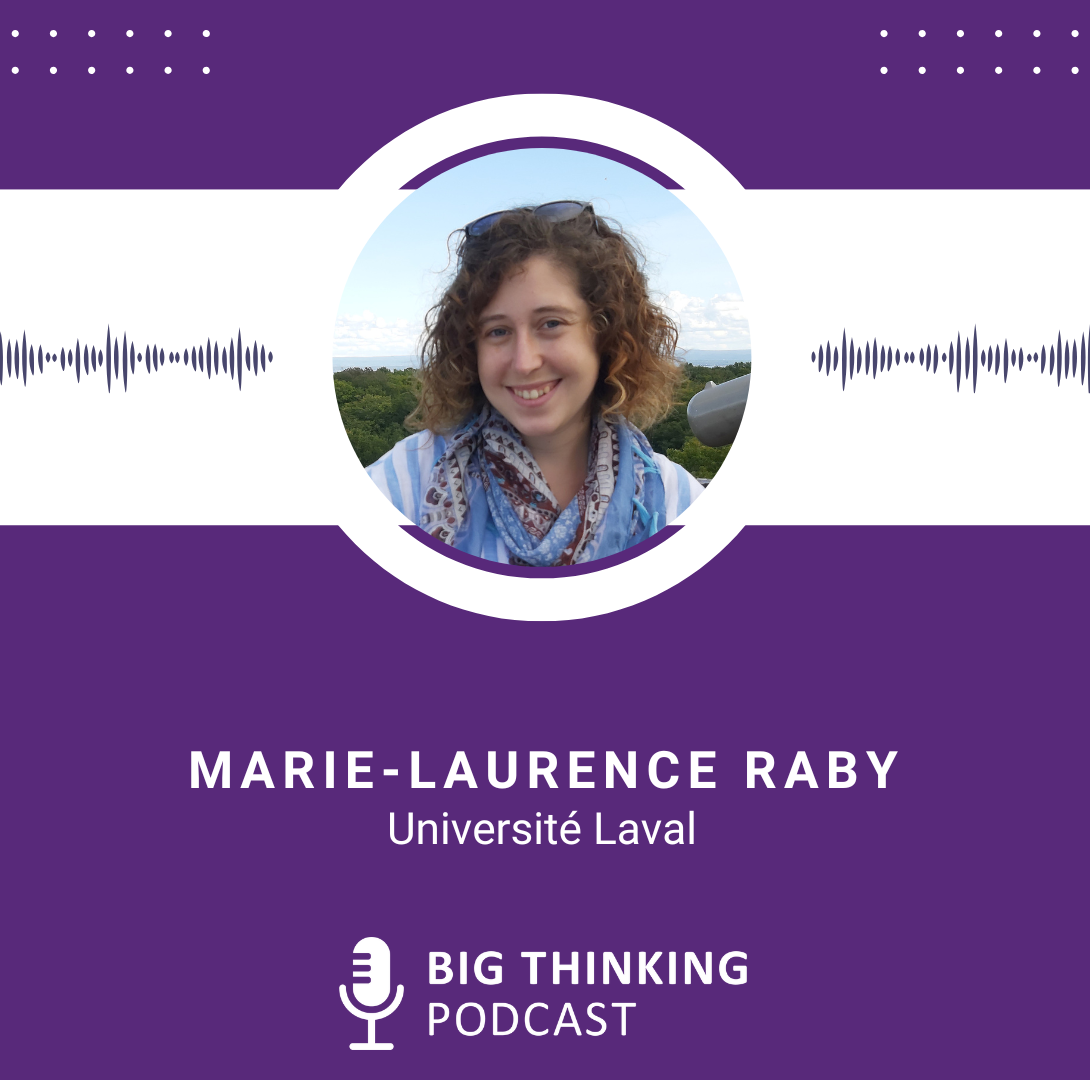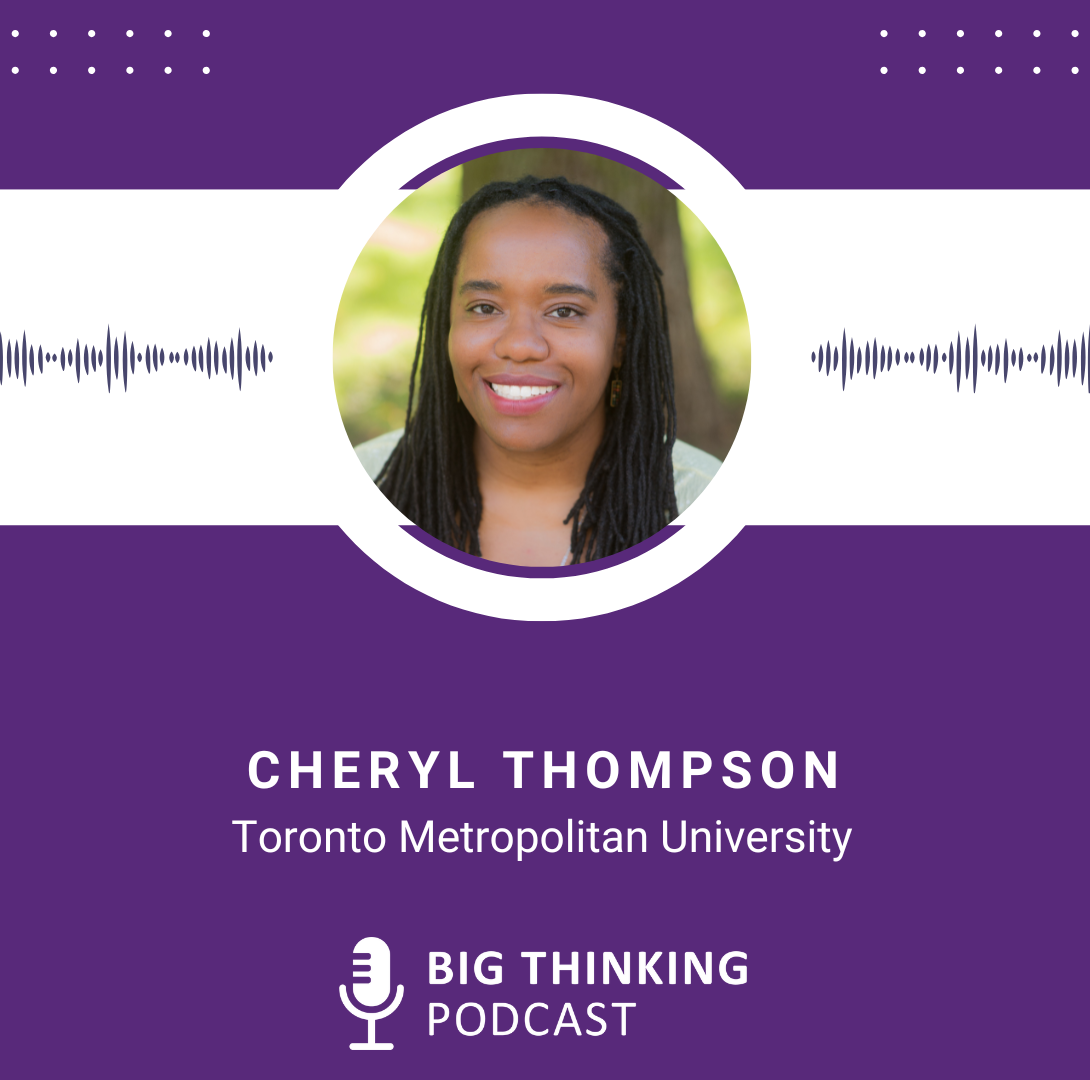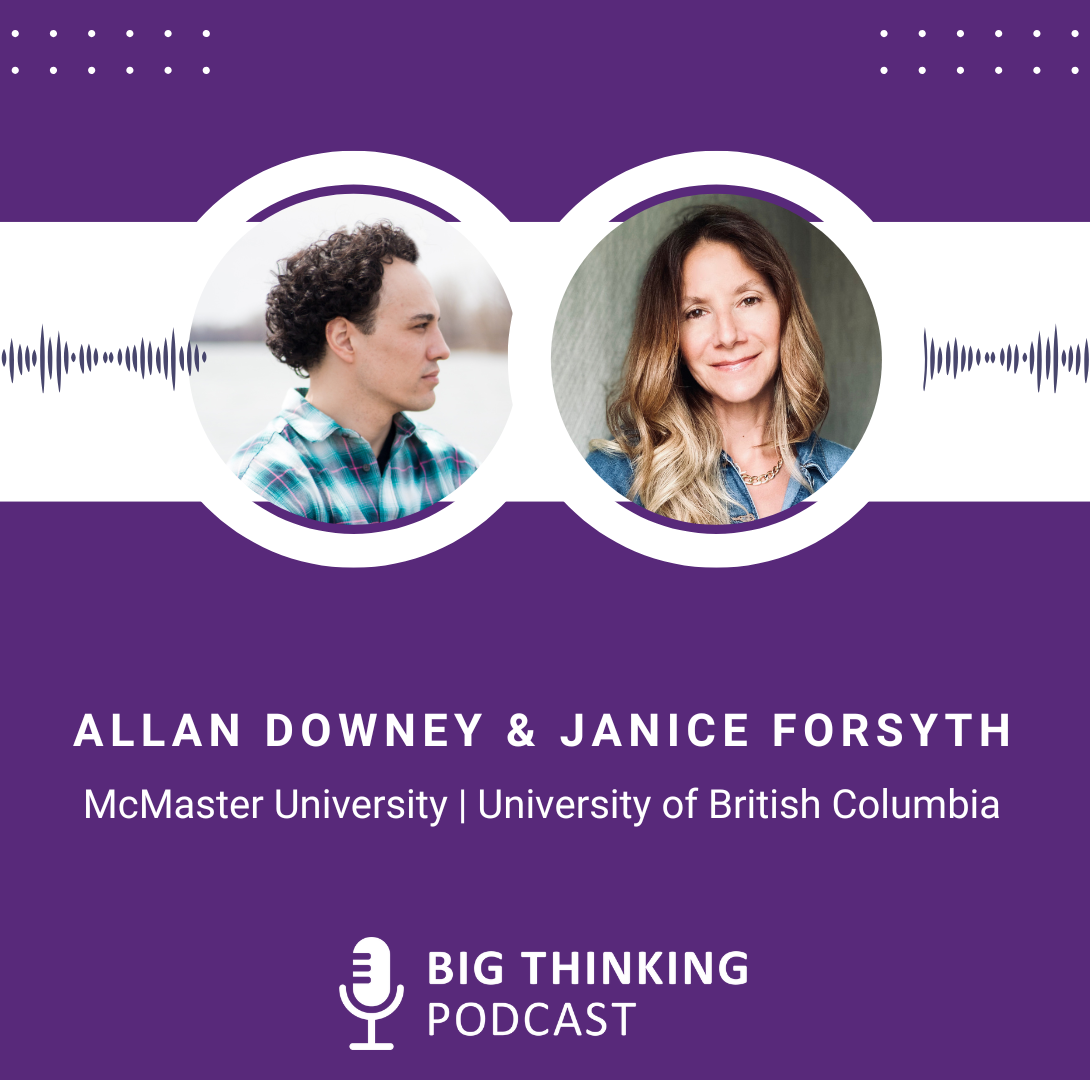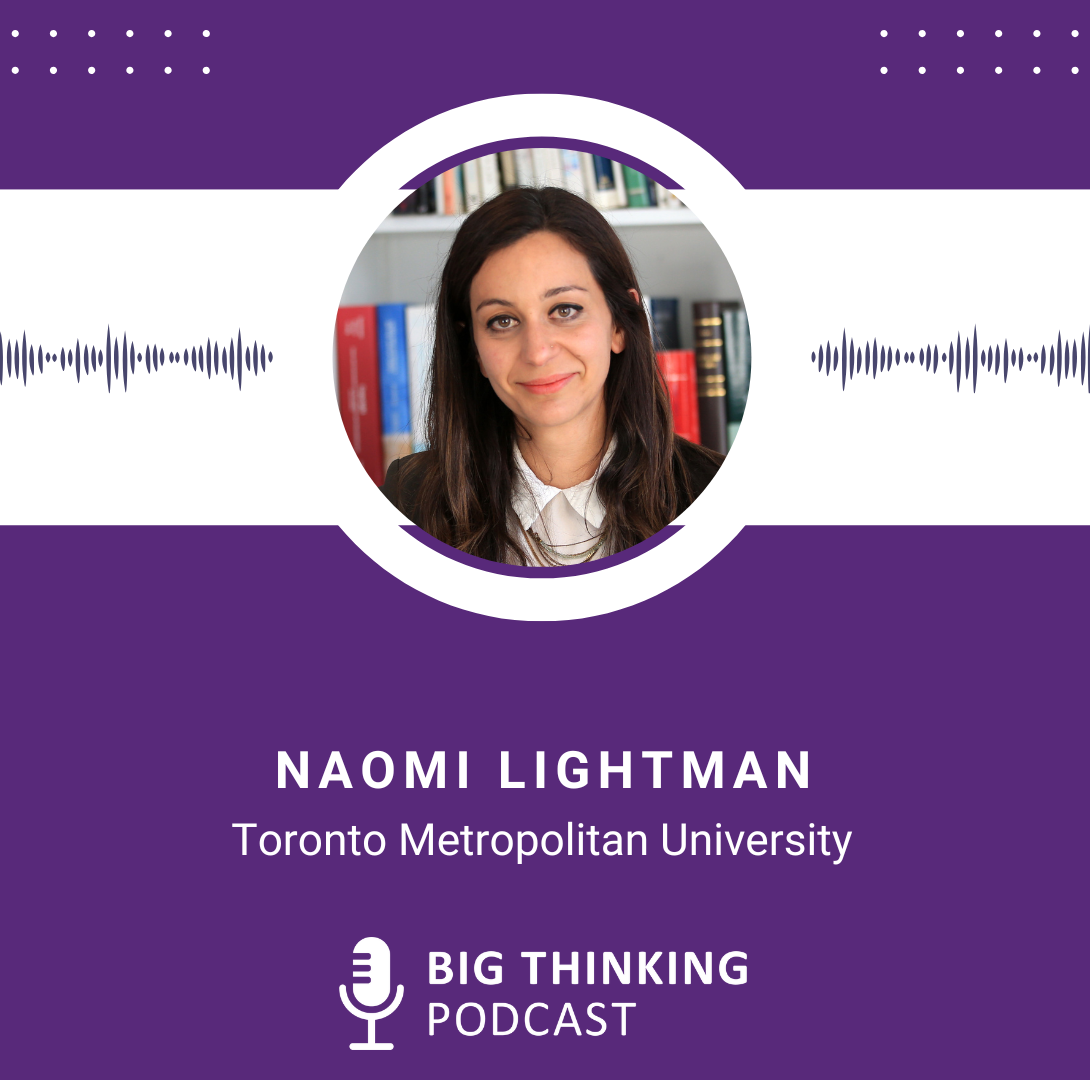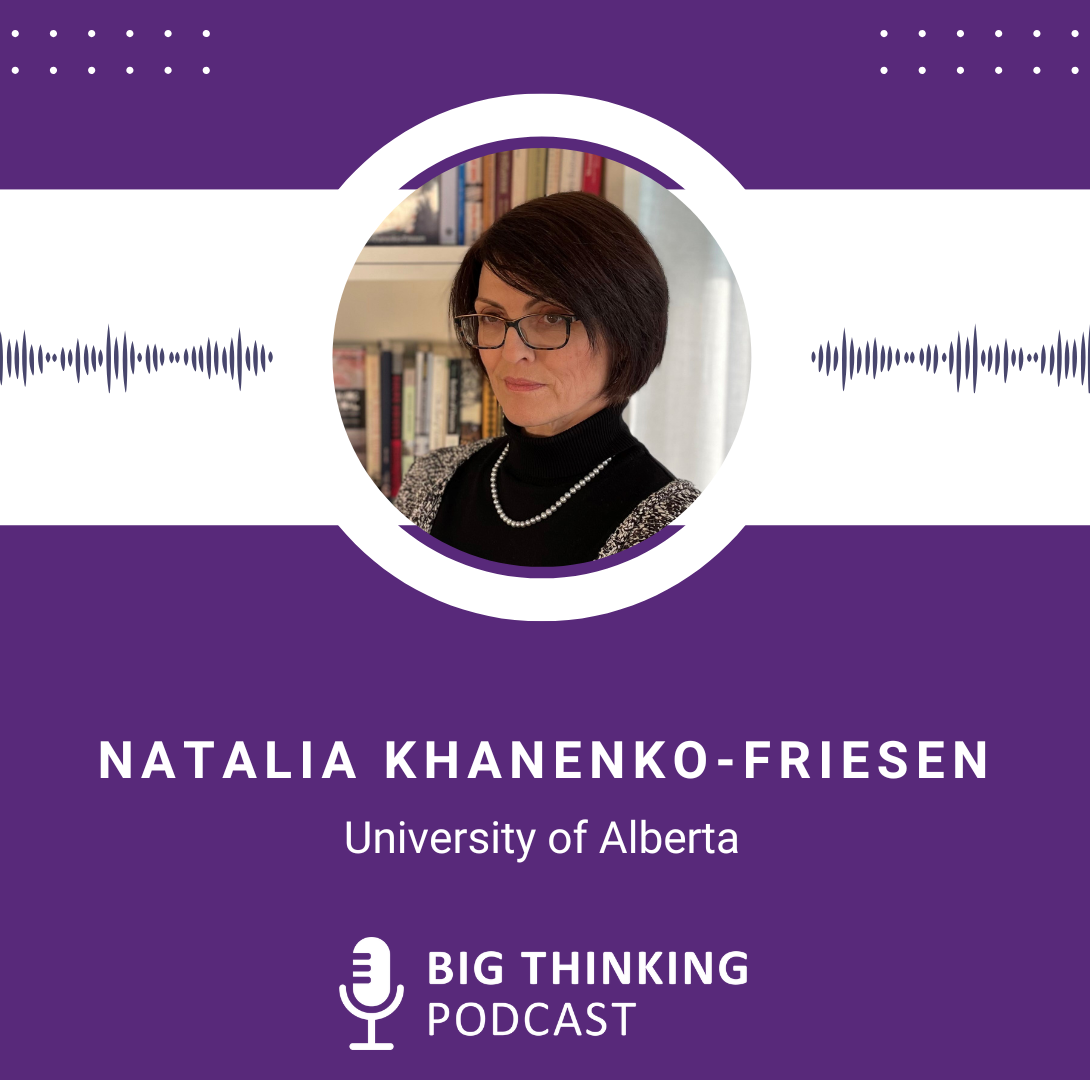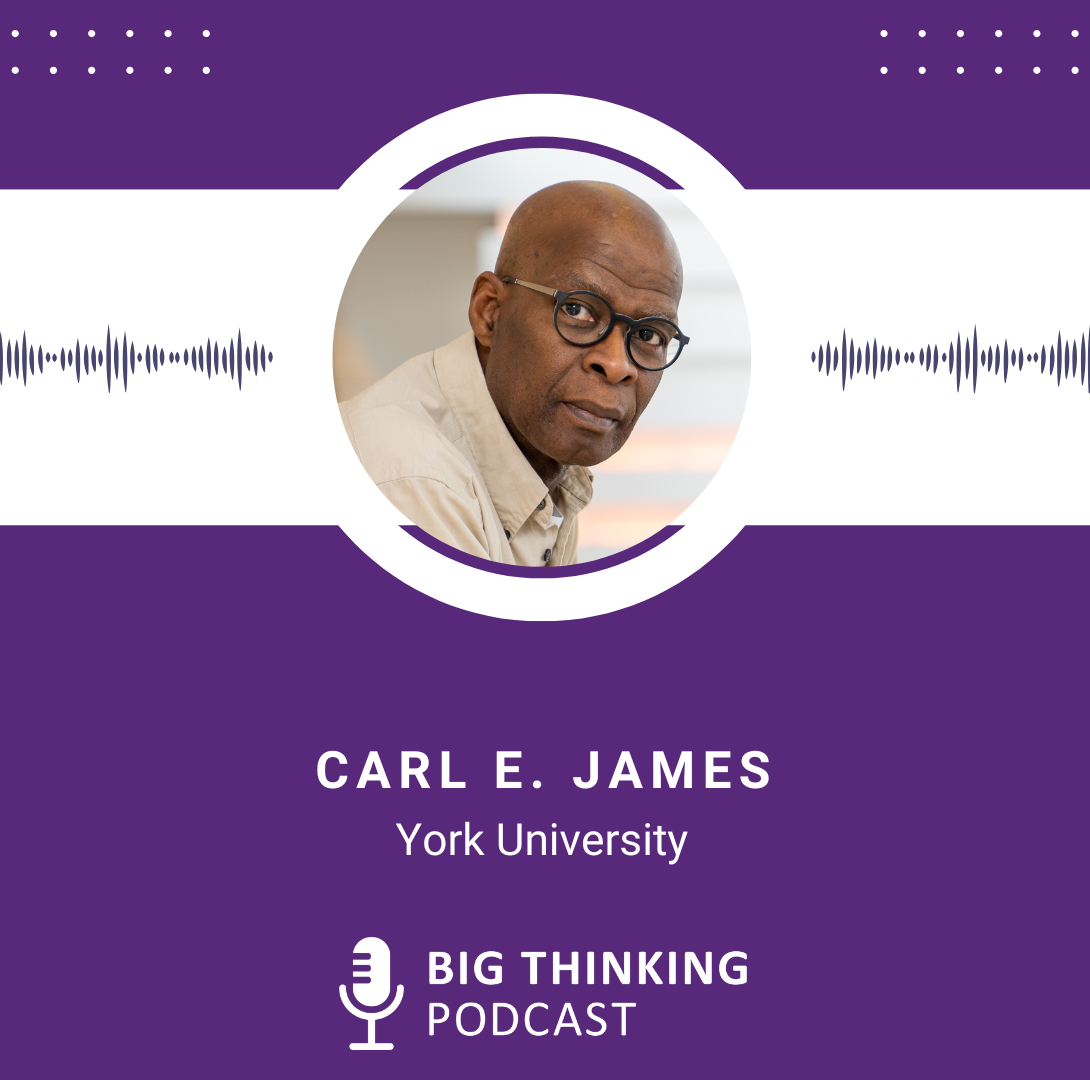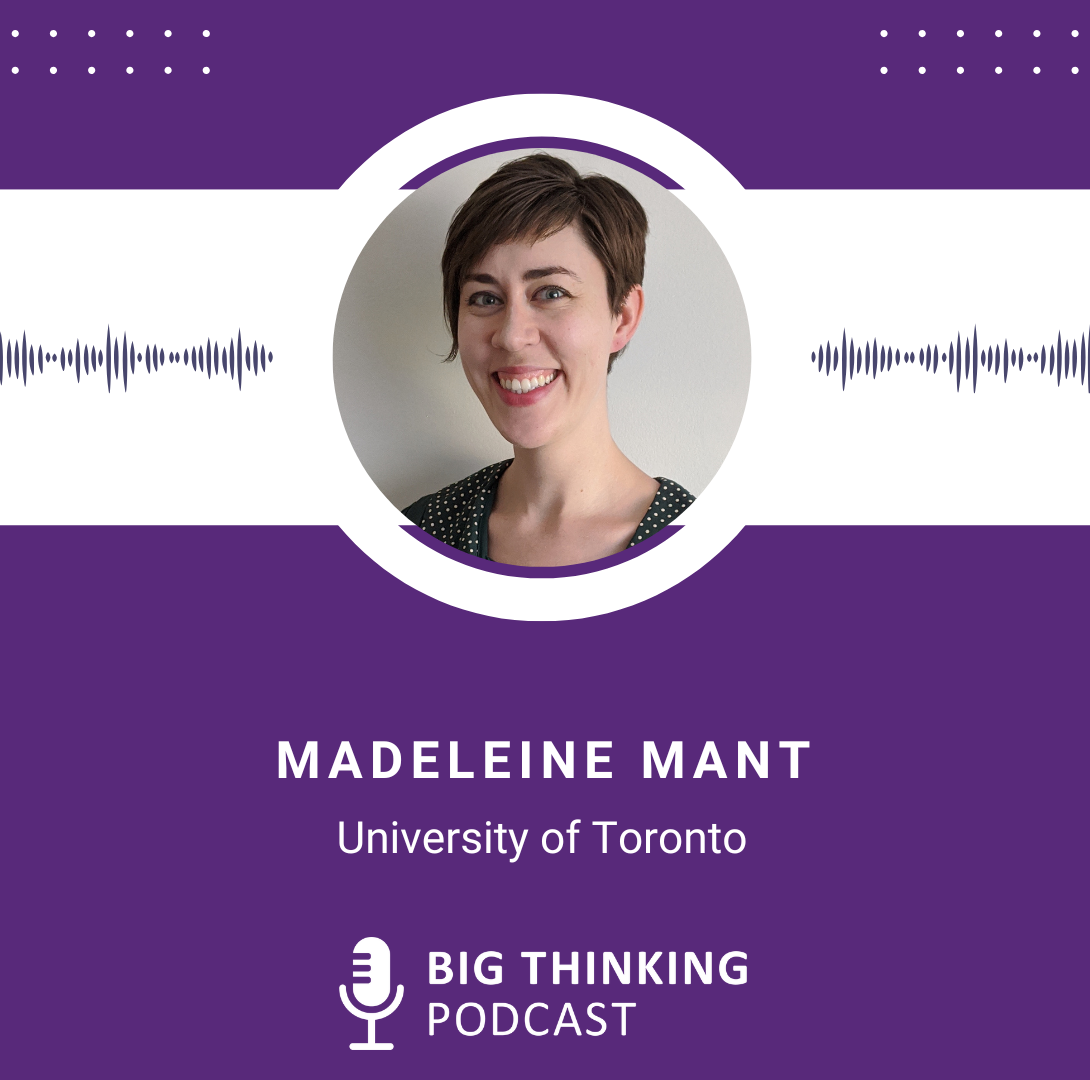 Latest episodes | Previous episodes | Follow us
Latest episodes | Previous episodes | Follow us
From Parliament Hill to your favorite podcasting platform! The Big Thinking Podcast showcases critical research from francophone and anglophone scholars across Canada, tackling the most pressing issues of our time.
The Big Thinking Podcast continues to challenge and inspire academics, students, policymakers, legislators, and community members with big ideas in the humanities and social sciences by featuring researchers in conversation with our host Karine Morin, Federation President and CEO, sharing their knowledge and insights on today’s biggest topics.
Latest episodes
(*new*) What does Canada gain when postsecondary connects?
Canada’s future is being written in the places where people learn and in how those places connect. If collaboration holds the key to shaping that future, how do we begin unlocking its full potential?
Listen to our new Big Thinking Podcast episode in partnership with The Conversation featuring Karine Morin, President and CEO of the Federation, and Pari Johnston, President and CEO of Colleges and Institutes Canada.
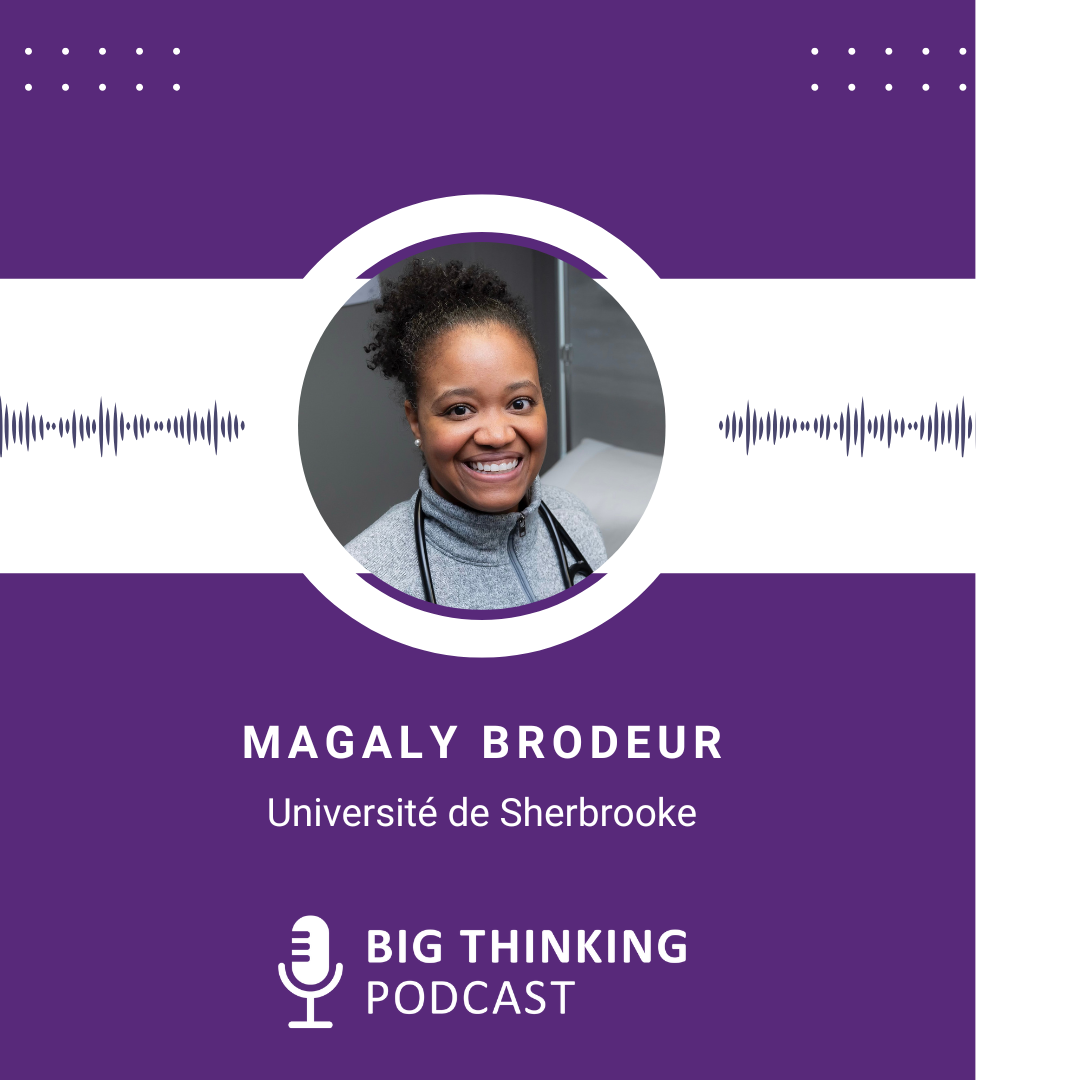
Harnessing interdisciplinarity to tackle behavioural addiction (Episode in French)
Why is it essential to combine perspectives, expertise, and methodologies from different fields to better understand the complexity of public health challenges? What are the concrete benefits observed when researchers from various fields collaborate?
Today on the Big Thinking Podcast, Karine Morin is joined by Magaly Brodeur, clinician and researcher, to explore the importance of interdisciplinary approaches in supporting impactful research on complex issues.
Connected generation: Youth facing the ethical dilemmas of the digital age (episode in French)
Welcome to Congress in Conversation, a special series presented by the Big Thinking Podcast and The Conversation Canada, where we convene key voices at Congress 2025 to share their research and experiences within the context of our theme Reframing togetherness.
In this episode, our host Martine Turenne, Editor-in-Chief of La Conversation Canada, is joined by Professor Megan Cotnam-Kappel. Together, they discuss the VRAenligne project, an initiative by Professor Cotnam-Kappel that explores ethical citizenship in the digital age, particularly among young Francophones living in minority communities in Ontario and Alberta. At the heart of their discussion, they will examine the role of young people in the digital space and answer the question: how do they perceive their citizenship in a digital world?
Pride and profit: The politics of corporate allyship
Welcome to Congress in Conversation, a special series presented by the Big Thinking Podcast and The Conversation Canada, where we convene key voices at Congress 2025 to share their research and experiences within the context of our theme Reframing togetherness.
In this episode, our host Eleni Vlahiotis, writer and editor specializing in media, business, labour and Canadian politics at The Conversation Canada, is joined by Dr. Daniel Conway and together, they take a closer look at the rise of Pride branding in the global north, the pressures and contradictions multinational companies face in different cultural and political landscapes, and what the current moment reveals about the limits and possibilities of corporate allyship.
The new art of running for office (Episode in French)
Whether in the middle of an election campaign or between ballots, politicians and political parties never really leave the public stage, which has now gone digital. In this month’s Big Thinking Podcast episode, Thierry Giasson, in conversation with our host Karine Morin, explores how political figures build their image, capture our attention and shape public debate through sophisticated marketing strategies.
Wildfires: Charting the path forward
In this episode, we dive into the complex world of wildfire research in Canada. Wildfires are becoming more frequent and intense, and understanding their causes and effects is more important than ever. What is the science behind them? What is their connection to climate change? And what role does interdisciplinarity play in wildfire research? Our host Karine Morin is joined by Dr. Mike Flannigan, BC Innovation Research Chair in Predictive Services, Emergency Management and Fire Science, and Dr. Shannon Wagner, Vice-President of Research at Thompson Rivers University to answer all of these questions.
Digital politics in the age of AI
In this episode, we’re exploring the ever-growing impact of artificial intelligence on digital politics and media. From shaping political campaigns to influencing public discourse, AI is transforming the way we engage with politics.
Karine Morin is joined by Fenwick Mckelvey, Associate Professor in Information and Communication Technology Policy in the Department of Communication Studies at Concordia University, to break down the risks, rewards, and ethical challenges surrounding AI in the digital realm.
Understanding the roots of extremism in Québec (Episode in French)
Is the rise of radical groups in Québec and across Canada an isolated phenomenon, or the mirror image of a worrying global trend? In this episode, we explore the definition of extremism, as well as the ideologies and growing impact of right-wing extremist groups.
In this episode, Karine Morin is joined by Frédérick Nadeau, to talk about the roots of extremism in Québec.
Equity, Diversity and Inclusion in the Post-Secondary Research System
Earlier this year, the Council of Canadian Academies released its report “Equity, Diversity and Inclusion in the Post-Secondary Research System.” The report examines measures that can enhance EDI, the benefits and challenges of implementing them, and their potential impacts on people and institutions.
In this episode, Dr. Wendy Rodgers, President and Vice-Chancellor of the University of Prince Edward Island and Chair of the Expert Panel on EDI Practices for Impactful Change, joins Karine Morin to talk about this important report.
Navigating Canada's immigration and education nexus
In this episode, we’re exploring a topic that has grabbed headlines across Canada over this past year – the cap on international students enrolled in our colleges and universities, and the ripple effect it’s having on higher education and immigration.
Congress in Conversation - Part III with Aliyah Datoo (episode in French)
Social networks offer community members opportunities to dialogue and express themselves within these digital platforms, bringing members of the public together in an effort to improve society. In this episode, Aliyah explores the role of community organizations in structuring online discussions within the francophone community in British Columbia.
Congress in Conversation - Part II with Kshamta Hunter
Climate change and the related social impacts have necessitated a re-think of traditional pedagogies. Educators are faced with the challenge to not only engage learners in these conversations, but to support and address the range of emotions and pedagogical complexities that involve socio-scientific realities. In this episode, we delve into a new Climate Education Framework for teacher education.
Congress in Conversation - Part I with Christopher Dietzel
Dating apps like Tinder, Bumble, and Grindr facilitate dates, hook-ups, and friendship, but people can experience a range of emotional, physical, sexual, financial, social, and cultural harms online and in person. In this episode we dive into dating app approaches to sustain user safety.
Redefining the Canadian housing paradigm - Part II
The intersection of climate change and housing crisis in Canada forms a pressing challenge, as extreme weather events become more frequent. Recent wildfires and events like the Saint-John River flood not only jeopardize housing structures but also contribute to displacement and homelessness. In this episode, we discuss the importance of resilient housing solutions.
Redefining the Canadian housing paradigm - Part I
The Canadian housing crisis is more than a financial challenge; it's a societal concern with deep-seated roots. The crisis has far-reaching consequences: escalating homes prices, limited affordable housing, and the impact of the pandemic have intensified the struggle and exacerbated social inequities. In this episode, we delve deep into the Canadian housing crisis.
Artificial Intelligence Law: The importance of fair regulation (episode in French)
In the recent years, AI has been at the center of many debates and discussions, especially in the academic world. As AI is starting to be part of our lives, both professional and personal, it is important to discuss the issues and risks associated with the explosion of these technologies, and how and why they should be regulated.
She-cession: unveiling the pandemic's impact on women in the workforce
Historically, most recessions have been described as being "he-cessions"; most jobs lost were male dominated industries, and the women led sectors shortly followed. When the Covid-19 pandemic started, women's employment was hit especially hard by the economic slow down that followed, causing some to call it a "she-cession." But what exactly does the term mean, why did it happen, and what does it tell us about the future of our economy?
Reconciliation as an everyday practice
In 2015, the Truth and Reconciliation Commission released its First Report which documented the experiences of more than 6,000 witnesses who survived living in residential schools as students. Eight years later, it is important to assess what progress we've made and what work remains for us to do in our journey towards Reconciliation. In this episode, we discuss Reconciliation as an everyday practice.
Abortion in Canada: How secure is our right?
With the overturning of Roe v. Wade by the U.S. Supreme Court last year and recent bans on abortion procedures south of the border, it is fair to ask what this means for Canada. In this episode, we will discuss the right of abortion in Canada.
How worried should we be about ChatGPT?
Artificial Intelligence is on the rise, and ChatGPT is one of the most prominent examples of a new technology that is changing our lives. But what do we really know about ChatGPT and how is it affecting higher education and research?
What is the future of books?
Digital technologies are reshaping every aspect of our society, and books are no exception. But as physical objects, books have a powerful connection to us and our culture. As our world continues changing, it’s worth asking what books mean to us and to our future.
From the Jheri Curl to TikTok: Canada and the global business of Black beauty
Every day we are bombarded by words and images telling us what we should find beautiful, and what we should aspire to look like. Black Canadians are subject to specific beauty ideals – but where do those expectations come from and how do they affect peoples’ lives?
Is sport a means for Indigenous self-determination in Canada?
Sports aren’t just fun and games, they’re a deeper part of who we are and where we come from. Today’s conversation is about Indigenous sport and its connection to self-determination and cultural regeneration.
Who cares for the caregivers?
Who cares for the caregivers? is a question too important to ignore especially after the COVID-19 pandemic exposed how our society treats the immigrant care workers we rely on.
What don't we understand about the war in Ukraine?
When Vladimir Putin launched a new military offensive last February, Canada condemned Russia’s actions and support Ukraine. As the war spills into 2023, what should we know about this conflict? What are we to make of the competing narratives about the war’s political, cultural, and historical context? How is our understanding affected by mythology and misinformation?
What will hybrid or online learning look like going forward?
The global pandemic transformed our classrooms, forced instructors to reinvent their teaching methods and accelerated the use of online learning tools.
Is bilingualism in peril in Canada?
With so many developments occurring at various levels of governments on bilingualism and official languages, we wanted to get an expert opinion on the situation in an attempt to answer today’s burning question: is bilingualism in peril in Canada?
How does race shape the experiences, education, and achievement of Black youth?
Today we talk about the question of race and the role it plays in shaping the experiences, education and overall life of Black youth. We are joined by Dr. Carl E. James, the Jean Augustine Chair in Education, Community and Diaspora in the Faculty of Education at York University, to further discuss this subject.
Are pandemic times really unprecedented?
On January 30, 2020, the World Health Organization declared the Covid-19 outbreak a public health emergency of international concern after an outbreak of the coronavirus 19 was discovered in Wuhan in November 2019. And on March 11, the situation has been characterized as a pandemic, leading multiple countries around the world to introduce lockdowns to stop the spread of the disease.
Today we talk about the still-evolving COVID-19 pandemic, a health crisis that’s often been called ‘unprecedented.’ But was it?


